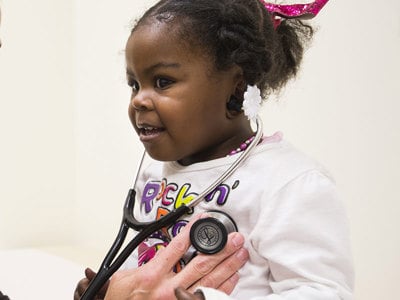- Doctors & Departments
-
Conditions & Advice
- Overview
- Conditions and Symptoms
- ¿Está enfermo su hijo?
- Parent Resources
- The Connection Journey
- Calma Un Bebé Que Llora
- Sports Articles
- Dosage Tables
- Baby Guide
-
Your Visit
- Overview
- Prepare for Your Visit
- Your Overnight Stay
- Send a Cheer Card
- Family and Patient Resources
- Patient Cost Estimate
- Insurance and Financial Resources
- Online Bill Pay
- Medical Records
- Política y procedimientos en el hospital
- Preguntamos Porque Nos Importa
-
Community
- Overview
- Addressing the Youth Mental Health Crisis
- Calendar of Events
- Child Health Advocacy
- Community Health
- Community Partners
- Corporate Relations
- Global Health
- Patient Advocacy
- Patient Stories
- Pediatric Affiliations
- Support Children’s Colorado
- Specialty Outreach Clinics
Your Support Matters
Upcoming Events
Mental Health Town Hall
martes, 23 de abril de 2024Join Children’s Hospital Colorado pediatric experts for a virtual...
-
Research & Innovation
- Overview
- Clinical Trials
- Q: Pediatric Health Advances
- Discoveries and Milestones
- Training and Internships
- Academic Affiliation
- Investigator Resources
- Funding Opportunities
- Center For Innovation
- Support Our Research
- Research Areas

It starts with a Q:
For the latest cutting-edge research, innovative collaborations and remarkable discoveries in child health, read stories from across all our areas of study in Q: Advances and Answers in Pediatric Health.


Non-IgE Mediated Food Allergies in Children (S1:E17)
Non-IgE (Immunoglobulin E) mediated food allergies, which are caused by parts of the immune system other than IgE antibodies, can be difficult to diagnose. Pediatric primary care providers (PCPs) who examine a child with symptoms that include profuse vomiting, bloody diarrhea, dehydration and shock need to determine if the issue is an allergy or something else entirely. This can be understandably frustrating for parents, providers and patients alike.
With so many considerations and differential diagnoses, PCPs would be wise to learn more about these tricky types of food allergies.
Listen to our allergy and immunology pediatric expert discuss non-IgE mediated food allergies in children
On today's episode, we welcome back Matthew Greenhawt, MD, to discuss non-IgE related food allergies, including Food Protein-Induced Enterocolitis Syndrome (FPIES). FPIES is a rare non-IgE mediated food allergy with delayed onset symptoms that can be difficult to identify, but PCPs who understand the symptoms and triggers can help kids get help sooner.
Dr. Greenhawt is Director of the Food Challenge and Research Unit at Children's Hospital Colorado and an associate professor of pediatrics and allergy at the University of Colorado School of Medicine.
In this episode, our expert explains:
- How non-IgE mediated food allergies most commonly present in children
- The fact that non-IgE food allergy symptoms in children generally appear several hours after the offending food is consumed
- Which food triggers are most commonly associated with FPIES babies
- The symptoms that FPIES babies experience
- How PCPs can diagnose the various presentations and triggers of dietary protein-induced enterocolitis
- The benefits of using extensively hydrolyzed infant formulas or amino acid-based infant formulas for babies with FPIES
- Considerations around treating atopic dermatitis with a topical steroid versus allergy screening
- Why it's important to treat skin conditions like eczema before attempting elimination diets and other food allergy tests
- Symptoms PCPs should look for that might indicate an eosinophilic esophagitis (EoE) diagnosis, which is the chronic inflammation of the esophagus caused by food allergies
- The subtleties and nuances that present with EoE, including avoidance of certain food textures, excessive water consumption while eating and other symptoms
- Innovative new diagnostic tools that have dramatically improved the care of young EoE patients
- The importance of identifying family history patterns to diagnose allergies
- How the presentation of FPIES differs between different countries and environments
Diagnosing and treating non-IgE related food allergies at Children's Colorado
Kids with non-IgE related food allergies are treated by the pediatric allergy experts in our Allergy and Immunology Center. When a child has EoE, they are treated by the highly specialized and skilled team in our Gastrointestinal Eosinophilic Diseases Program. Both the center and program utilize a multidisciplinary approach that includes allergists, gastroenterologists, feeding specialists, speech therapists and other pediatric specialists. Refer a patient to Children's Colorado.



 720-777-0123
720-777-0123





